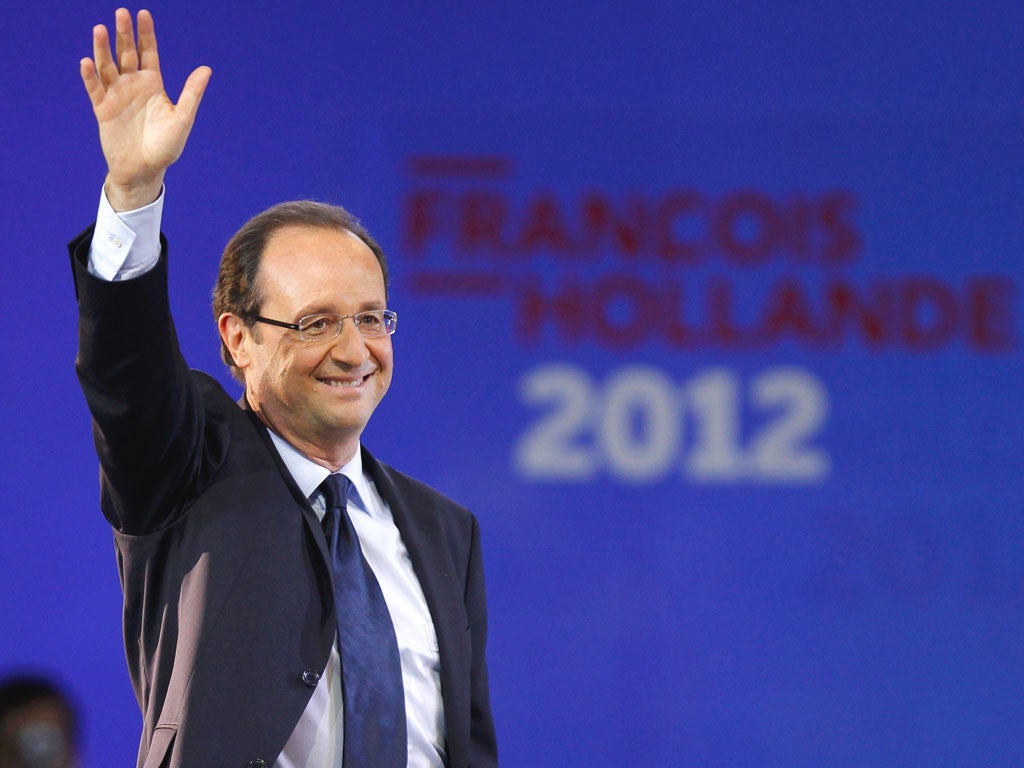Euro leaders accused of pact to shun French Socialist chief

Your support helps us to tell the story
From reproductive rights to climate change to Big Tech, The Independent is on the ground when the story is developing. Whether it's investigating the financials of Elon Musk's pro-Trump PAC or producing our latest documentary, 'The A Word', which shines a light on the American women fighting for reproductive rights, we know how important it is to parse out the facts from the messaging.
At such a critical moment in US history, we need reporters on the ground. Your donation allows us to keep sending journalists to speak to both sides of the story.
The Independent is trusted by Americans across the entire political spectrum. And unlike many other quality news outlets, we choose not to lock Americans out of our reporting and analysis with paywalls. We believe quality journalism should be available to everyone, paid for by those who can afford it.
Your support makes all the difference.Four conservative European leaders, including David Cameron, have an informal pact to ostracise the French presidential front-runner, François Hollande, it is alleged today.
An article in the German news magazine, Der Spiegel, claims that the German, British, Italian and Spanish leaders have made a verbal deal to shun the Socialist candidate – and runaway favourite – before the two-round election in April and May.
In the case of Angela Merkel of Germany, Mario Monti of Italy and Mariano Rajoy of Spain, the magazine said the ban was a punishment for Mr Hollande's pledge to renegotiate the European treaty on fiscal discipline, which was signed last week.
Mr Cameron, who refused to see Mr Hollande in London last Wednesday, joined the pact out of ideological solidarity with President Nicolas Sarkozy, Der Spiegel claimed.
Ms Merkel's office denied the story yesterday. But Mr Hollande's campaign team condemned a "concerted, conservative intervention" in the French presidential campaign which was "unprecedented in the history of Europe". Mr Hollande (pictured right), who polls suggest will become President on 6 May, also tried to stir up national and democratic outrage. But he took care not to burn bridges with European leaders who may soon be his colleagues. "It is for the people of France to decide their future," he said. "Other European leaders, for whom I have the greatest of respect, have no right to influence the choice of the French people."
Mr Hollande, 57, whose first-round lead over Mr Sarkozy grew to 7.5 percentage points in a poll yesterday, has visited Berlin, Rome and London during his campaign. In each capital, he saw centre-left opposition leaders but not the centre-right Chancellor or Prime Minister. His campaign team insisted that, at least in the case of Germany, this broke with tradition.
Mr Sarkozy's spokeswoman, Nathalie Kosciusko-Morizet, said it was "ridiculous" to talk of a plot. Leaders were avoiding Mr Hollande due to his "credibility problem", she said.
The aristocratic-seeming Ms Kosciusko-Morizet, a former Environment Minister, has a credibility problem of her own. In an error-strewn period for Mr Sarkozy and his campaign, she told a radio interviewer last week that a ticket on the Paris Métro now costs "around €4 (£3.30)" – nearly three times the actual amount. Although trivial, the incident was unfortunate for a campaign which seeks to portray Mr Sarkozy as a "Frenchman among the French".
The suggestion there is a pro-Sarkozy conspiracy of European centre-right leaders could be more damaging for a President who promises to preserve "French national identity".
In a campaign speech in Bordeaux on Saturday, Mr Sarkozy reacted to poor polls and a week of minor calamities by steering his campaign rightwards.
He said immigration could be a "problem" and he vowed to crack down on any special arrangements for halal meat or separate swimming times for Muslim women in public pools.
Join our commenting forum
Join thought-provoking conversations, follow other Independent readers and see their replies
Comments